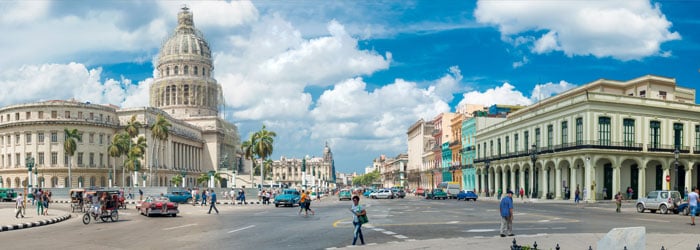What’s next in Cuba: How recent announcement could affect group travel planners
On June 16, President Donald Trump signed a directive that will affect how U.S. citizens can engage in travel to Cuba in the future. What does this mean for group travel to Cuba going forward?
“In the immediate future, this changes very little for group travel,” says Laurie McLaughlin, Holbrook Travel’s Vice President of Customer Services. “Looking down the road, there may be a broader impact, but that remains to be seen.”
According to the Department of Treasury Office of Foreign Assets Control (OFAC), the anticipated changes to U.S. policy will be implemented over the next several months and will primarily affect individual people-to-people travel, which will no longer be permitted once the new regulations go into effect.
Here’s what group travel planners need to know:
-
Group people-to-people travel programs and those traveling under an academic license will continue to be authorized.
-
As before, groups must maintain a full-time schedule of educational activities, resulting in meaningful interaction between the traveler and individuals in Cuba.
-
The biggest impact for future travel groups could come from anticipated restrictions to the Cuban entities that American companies (including travel companies) can do business with.
(The full text of OFAC’s formal announcement can be viewed here.)
According to The New York Times, Trump is “directing a broad prohibition against Americans doing business with companies controlled by the military, intelligence or security services in Cuba, which own large segments of the economy through the military’s business arm known as Grupo de Administración Empresarial S.A., or Gaesa. The change could have sweeping implications for American companies, but it is not clear how it will affect existing deals.”
The State Department plans to publish a list of the Cuban entities included under the ban, according to OFAC. Depending on which entities are on the list, this could potentially limit travel planners’ use of certain accommodations or other service providers.
“Fortunately, we have a long history of working in Cuba,” says McLaughlin. “We have long-standing relationships and a wide network of contacts. Once the specifics of the new policies are announced, we can work with our in-country partners to find solutions that best serve group travel planners within the framework of the regulations.”


